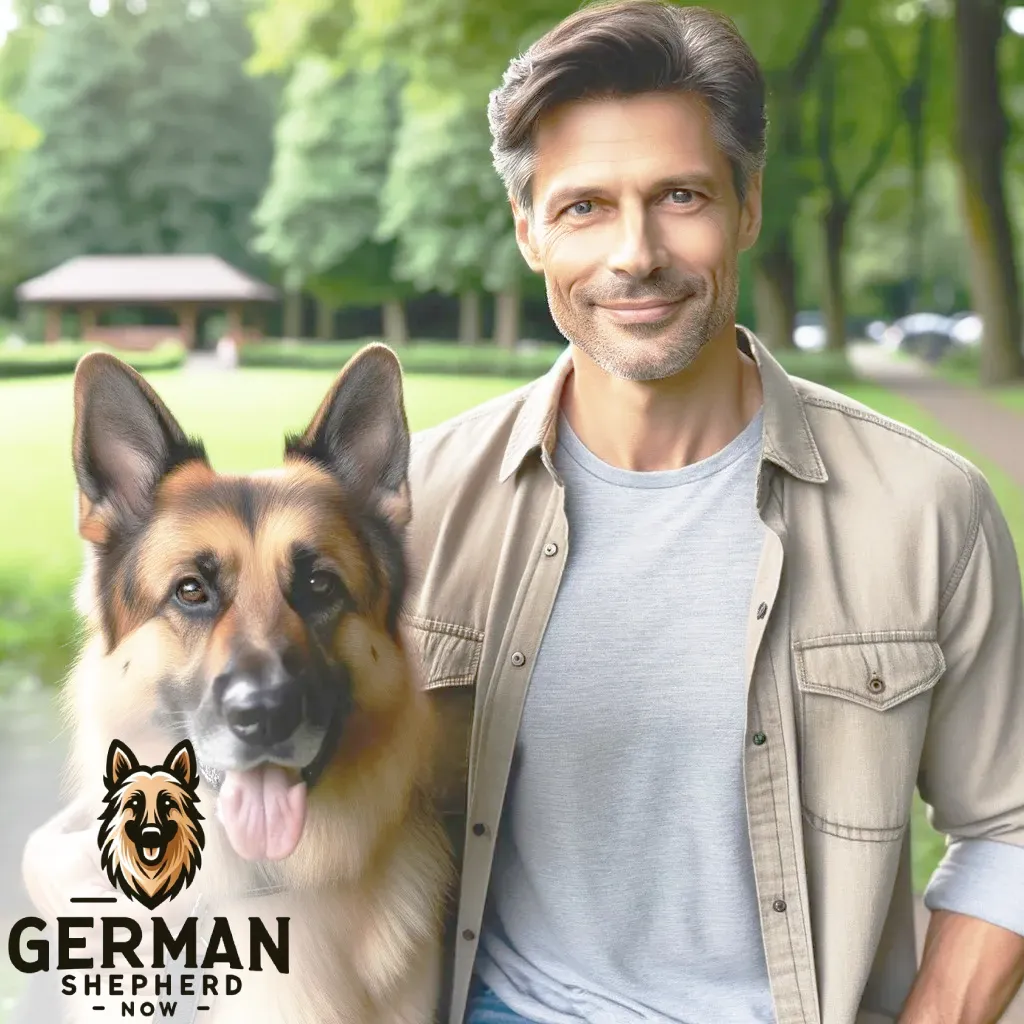Will A German Shepherd Protect You Without Training?

German Shepherds are known to protect their owners even without formal training. Their natural loyalty and protective instincts drive this behavior.
Without training, they might show too much aggression or act when they think they need to protect.
Protective Instincts of German Shepherds
These dogs have strong protective instincts. This comes from their history of being bred for herding and guarding. They need to look after their family and home and can spot possible dangers.
Breed Origin and Protective Nature
German Shepherds were herding and guarding dogs. This background is why they want to protect. They used to keep flocks safe and now look after their human families.
Instinct Versus Trained Behavior
There’s a big difference between a German Shepherd’s natural protective actions and what they do when trained. On instinct, they might bark or get between their owner and something they see as a threat. But with training, they learn to respond in specific ways to different situations.
Socialization Impact
How German Shepherds are socialized when young affects how they see and react to potential dangers. Good socialization helps them distinguish everyday situations from threatening ones, lowering the chance of being protective when it’s unnecessary.
Territorial Instincts
German Shepherds are territorial. This is part of why they’re protective. They often watch over their home and tell their owners if they see strangers or anything unusual.
Loyalty and Bonding
These dogs are very loyal and form strong bonds with their families. This emotional connection makes them want to protect their loved ones, sometimes even putting themselves in danger.
Unpredictable Protective Actions
A German Shepherd’s protective actions can be complex to predict without training. They might see something as a threat when it’s not or not act when there’s a real danger. This shows why training is essential for dependable protection.
Distinguishing Play from Protection
German Shepherds might not tell the difference between playing and real threats if they’re not trained. This could lead to them overreacting during harmless fun, like when people are play-fighting or roughhousing.
Overprotectiveness and Aggression
Sometimes, these dogs can become too protective. This might make them act towards strangers or even family members. Training helps control and direct their protective instincts.
Family and Child Protection
Their protective nature often includes the whole family, including kids. German Shepherds are usually good with children but should be watched to ensure they don’t become too defensive.
Need for Responsible Ownership
Owning a German Shepherd means understanding and managing their natural protective instincts. This is done through training and socialization, making sure they’re well-behaved.
Understanding these facts helps owners guide their German Shepherds’ protective instincts. This way, they can be loving companions and reliable protectors.
Sixth Sense in Shepherds: Can German Shepherds Detect Danger?
German Shepherds are known for sensing things that people might miss. They are especially good at detecting danger.
Strong Sense of Smell
These dogs have a perfect sense of smell. They can pick up on small changes around them that might mean danger, like unfamiliar people or animals.
Keen Hearing Abilities
Their hearing is also better than humans. They hear things we can’t, helping them notice unusual sounds that could be dangerous.
Body Language Reading
They are good at reading body language. This helps them sense fear, aggression, or tension, which might mean a threat.
Trained for Danger Detection
They are often trained for jobs where sensing danger is critical, like in police or military work. Even without training, they have a natural ability to sense danger.
Protective Instincts
Their instincts make them likely to react if they think their family or home is in danger.
Environmental Awareness
German Shepherds are very observant. They notice when things aren’t every day, which could signal danger.
Response to Fear and Anxiety
They pick up on their owner’s emotions. The dog will become more alert and protective if an owner is scared or anxious.
Loyalty and Bonding
Their strong bond with their owners makes them aware of situations where their loved ones might be in danger.
Training Influences Reaction
They can sense danger, but training affects how they react to it. Proper training ensures they respond, not out of fear or aggression.
German Shepherds: When Do They Start Guarding?
German Shepherds are well-known for their ability to guard. But when do they start showing this behavior?
Development of Guarding Instincts
They usually start showing guarding behaviors when they’re 6 to 12 months old. This is when they become more aware of their
surroundings and begin to tell the difference between familiar and unfamiliar things.
Influence of Socialization
How they’re socialized affects how they guard. Being around different people and places helps them learn what to protect against and when to start doing it.
Puberty and Guarding
They become more territorial when they’re six months to a year old. This is often when their protective instincts start to show.
Maturation and Protective Behavior
They usually mature when they’re 2 to 3 years old. Their guarding behavior becomes more precise and more controlled.
Training’s Impact on Guarding
Training, especially for obedience and protection, influences how and when they start guarding. Training young makes sure their instincts are used and not too much.
Variation Among Individual Dogs
Each German Shepherd is different. Some might start guarding earlier than others, depending on their genes, environment, and personality.
Signs of Early Guarding Behavior
Early signs include being alert to new things, barking at strangers, or being cautious in new situations. Watching for these signs helps guide their protective instincts.
The Role of Owners
Owners have a significant role in how their German Shepherds are guarded. Consistent training, positive reinforcement, and proper socialization ensure these behaviors develop well and are controlled.
Knowing when a German Shepherd starts guarding is essential for owners. It helps them train and guide their dog, ensuring it’s a good protector and a friendly family member.
Conclusion
German Shepherds want to protect, but their reactions can be complex to predict without training.
Training and socializing them is essential to ensure they’re reliable protectors and well-adjusted family members.
The proper training turns their natural guarding tendencies into disciplined behavior, making them not instinctive guardians but trustworthy, controlled companions.

I’m Martin, and I grew up in the super cool city of Seattle. You know, the place with all the incredible mountains and forests? Yeah, that’s my playground!
Ever since I was little, I’ve been all about nature. I used to wander around the woods with a notebook, doodling all the cool plants and animals I’d find.
